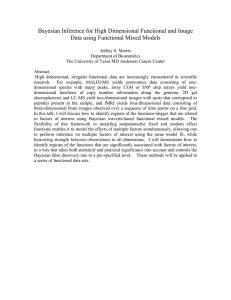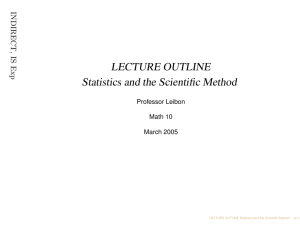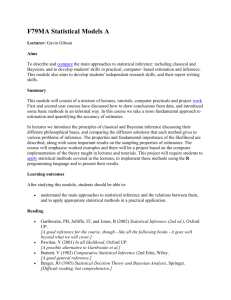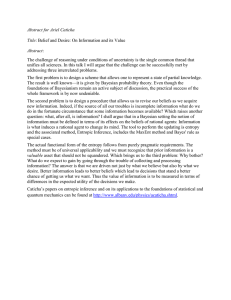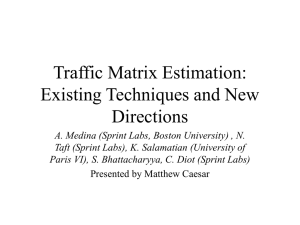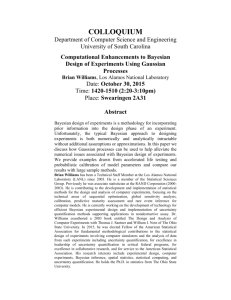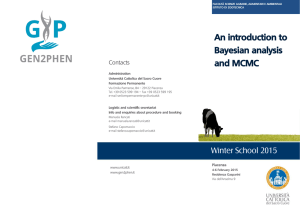Bayesian inference for source term estimation Veronica Bowman
advertisement
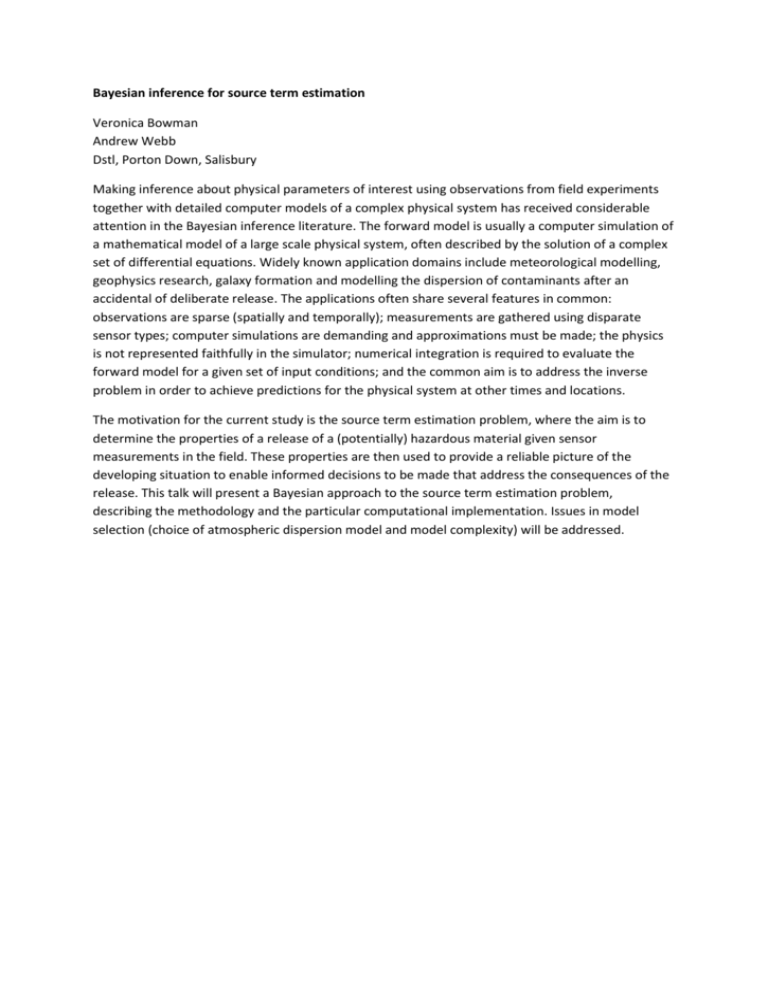
Bayesian inference for source term estimation Veronica Bowman Andrew Webb Dstl, Porton Down, Salisbury Making inference about physical parameters of interest using observations from field experiments together with detailed computer models of a complex physical system has received considerable attention in the Bayesian inference literature. The forward model is usually a computer simulation of a mathematical model of a large scale physical system, often described by the solution of a complex set of differential equations. Widely known application domains include meteorological modelling, geophysics research, galaxy formation and modelling the dispersion of contaminants after an accidental of deliberate release. The applications often share several features in common: observations are sparse (spatially and temporally); measurements are gathered using disparate sensor types; computer simulations are demanding and approximations must be made; the physics is not represented faithfully in the simulator; numerical integration is required to evaluate the forward model for a given set of input conditions; and the common aim is to address the inverse problem in order to achieve predictions for the physical system at other times and locations. The motivation for the current study is the source term estimation problem, where the aim is to determine the properties of a release of a (potentially) hazardous material given sensor measurements in the field. These properties are then used to provide a reliable picture of the developing situation to enable informed decisions to be made that address the consequences of the release. This talk will present a Bayesian approach to the source term estimation problem, describing the methodology and the particular computational implementation. Issues in model selection (choice of atmospheric dispersion model and model complexity) will be addressed.
